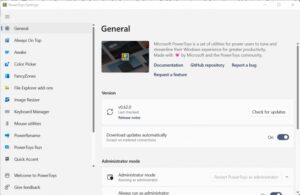The volunteer group has helped more than 500 people leave Afghanistan since August.
” data-credit=”Image: Team America Relief”>
The non-profit Team America Relief is using Airtable and Rownd, a data privacy service, to help 22,000 Afghan citizens apply for American visas.
Image: Team America Relief
Afghanistan has dropped out of the headlines since August when the U.S. government spent the month evacuating U.S. citizens and Afghans who had worked with the military. However, many translators and interpreters and their family members are still looking for a safe passage to America.
The challenge of helping these U.S. allies to find a way out of the country has just begun, according to a volunteer with Team America Relief. Rob Thelen was one of the first people to join this group that is helping U.S. allies get out of Afghanistan.
“This is not going away, this is going to be with us for generations,” he said.
Thelen manages the technology powering Team America Relief’s work. The project started with a Gmail address–Team America Afghan Evac–as it became obvious that many people needed help finding a way to America.
“The Gmail address started to get bounced back and forth in Afghanistan and we were getting thousands of emails per hour from people trying to get help,” he said. “Some were translators, some were women lawyers, and some were former employees.”
He said the team’s data collection quickly needed more than Excel and then Google Sheets could offer.
“We went from 300 people to 10,000 in our database within days,” he said.
Team America Relief has helped more than 500 people leave Afghanistan since August.
Richard Porter is the CTO of Team America Relief and Thelen has been working with him to manage data flow and access. Porter also served in Afghanistan and he and Thelen worked together at IBM for a few years as well.
SEE: Navigating data privacy (free PDF) (TechRepublic)
“I automated the intake process and we added in data privacy so people could claim and manage their own data,” he said.
Thelen said he had used Airtable in the past and thought the spreadsheet-database hybrid would be a great tool for managing the personal data of people looking to leave Afghanistan.
“We wanted to be able to lock down everything, including roles and views,” he said.
Airtable employees volunteered to migrate the data, including more than 5GB of images, and wrote scripts to automate various tasks.
As of mid-December, Team America Relief had more than 22,000 people in the Airtable database.
“This has allowed a bunch of low-code individuals to do this in a dynamic and fast way,” he said.
Managing vital immigration data with Airtable
According to an article in the New York Times, only about 135 of the 28,000 applications from Afghans seeking humanitarian parole have been approved since July 1. U.S. Citizenship and Immigration Services processes these requests and usually receives about 2,000 applications from around the world annually.
Thelen said Airtable’s ability to share information in real time and robust access controls are crucial for working with government agencies. State department officials first wanted static Excel files from Team America Relief volunteers but that has changed over time as officials have become used to a more modern way of managing data.
“We would give them a link to the data as well as a static copy,” he said. “Over time they started to embrace that they could download the data so real-time information is becoming the norm instead of the exception.”
SEE: Low-code platforms: A cheat sheet
Thelen said that his work with the non-profit as well as other groups doing similar work are nudging the federal government to adopt more modern technology for managing data.
“We’ve seen small improvements in the state department’s process for verifying employment,” he said. “When it comes to big operations like this, I hope they start to embrace that tech because this is the perfect use for it.”
Team America Relief volunteers use Airtable’s custom view options to work with other groups looking to help refugees.
“If a law firm wants to do 400 pro bono cases, we can give them a list and if that list changes, it’s updated automatically,” he said. “If the FBI wants to run pre-emptive background checks, we can give them a view too.”
Thelen said Airtable’s access controls are also a good fit for working with volunteers because onboarding goes quickly and it’s easy to restrict access when a volunteer leaves. The majority of Team America Relief volunteers clean up and manage data. A smaller group serves as case managers to help Afghans build visa applications. Many of the volunteers are veterans of the war in Afghanistan who worked with the people trying to get out of the country.
Team America Relief is looking for Pashtun and Dari translators to help with the work as well as case managers.
Protecting personal data and privacy
Applying for entry into the U.S. requires extensive documentation. Team America Relief helps Afghans collect and manage passport information as well as documents and images proving work history. In addition to organizing and storing the information, the non-profit uses a privacy protection service as well.
Rownd allows individuals to redact some or all personal data from the database. People working with Team America Relief use a “personal data center” via Rownd to manage access to their personal information.
“A person can claim her data and hit redact and then turn it back on at some point as needed,” Thelen said.
Team America Relief’s data storage service has become a safe haven for vital data.
“Some people after they trusted us started to send us all of their data because they were afraid they would have to burn their stuff,” he said.
About 5,000 people have claimed their data and 2,000 have redacted some of the information. Thelen said that about 200 people have used the option to delete their data completely.
Controlling access to this data can be a matter of life and death for American allies trying to avoid the Taliban in Afghanistan. Thelen said that some of his contacts in the country said that members of the Taliban sometimes check a person’s phone to look for correspondence with the U.S. State Department.
Just as American soldiers had to build trust with the people they worked with in Afghanistan, Team America Relief had to build trust by giving individual’s complete control of their data.
“For a lot of refugees, their identity is all they have,” he said. “It was very important for me to make sure my Afghan friends can go in and turn this off when they need to.”
Thelen led a 12-person advising team while he was in Afghanistan and mentored individuals.
The people he met were generous and friendly, he said, and he would like to return to the country during peacetime.
“The most amazing landscapes I’ve ever seen and the most amazing people I’ve ever met have been in Afghanistan,” he said. “I’d like to put on a backpack and walk through those hills without worrying about being shot.”
Also see
Source of Article




